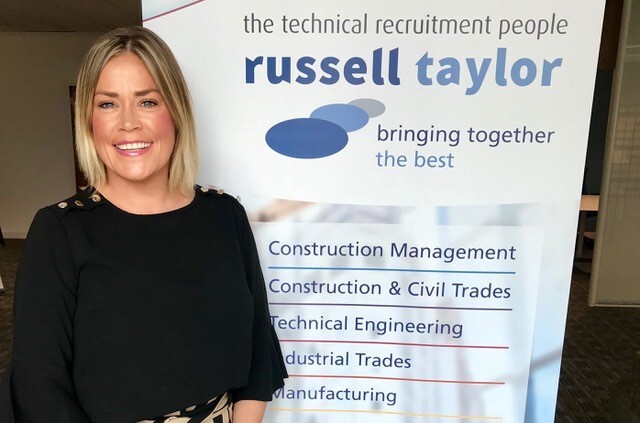Rapid recruitment keeps manufacturing industry’s wheels turning
Posted by on 16/06/2022

FAST action has never been more important than now for manufacturing employers to recruit the right workforce and keep their businesses buoyant as the economy recovers.
With the so-called Great Resignation showing no signs of easing off, Russell Taylor Group’s Manufacturing Division manager Kelly Newell advises: Speed up your recruitment process or skilled job-seekers will go elsewhere.
She said: “We’ve reached the stage where candidate CV submission to feedback and job start-up can be anything from 24 to 48 hours - it’s that fast.
“Clients with vacancies to fill simply can’t afford to sit back and wait throughout a long selection process. If companies aren’t quick to hire the talent they want, another employer will get in there first.”
Although the impact of Covid-19 resulted in a substantial reduction in the UK’s manufacturing output, forecasts indicate the sector is on track to return to pre-pandemic levels by the end of this year. With an annual output of £183 billion, the country is still the ninth largest manufacturing nation in the world and has more than 2.5 million people employed in the industry.
The Great Resignation first appeared a year ago when, as the pandemic began to recede, an unprecedented rise appeared in the number of workers resigning from their jobs. Almost one in five people surveyed said they planned to change jobs in the coming 12 months, pay increases and job satisfaction being among the main reasons for moving on.
Kelly continued: “As the resignations continue, the number of highly qualified people seeking work is mounting and there are no signs of a slow-down here.
“It’s therefore vital that employers in our manufacturing operations realise that, to keep the wheels of industry turning, a rapid turnaround is the only way to get the right candidates in place. Where once the recruitment process could take weeks, we are now looking at days from start to finish.
“Speed is essential to getting skilled candidates in place. It’s very much a candidate-driven market at the moment with good quality people – those who are in high demand - looking for new employment.
“These job-seeking candidates are very much in the driving seat. For instance, there are instances where engineers don’t want to work shifts any more - highly skilled workers like this are in hot demand and employers can’t afford to be complacent when it comes to hiring.”
Added to this, explained Kelly, is the number of qualified people relocating to the UK from South Africa, India and Dubai.
She said: “The result is a huge influx of talent with the right skills to fill the growing number of vacancies caused by the ‘resigners’.
“Chances are candidates may have a couple of other job offers in the pipeline so employers simply can’t afford to sit back and wait throughout a long selection process. If companies aren’t quick to hire the talent they want, you can rest assured someone else will sign them up.
“Every day that a job vacancy is left unfilled can mean a company experiencing a reduction in productivity. Filling vacancies with speed is crucial to keeping business buoyant.”
Russell Taylor Group’s Manufacturing Division was set up to specifically supply a labour force of contract and permanent roles, ranging from skilled trades through to senior management and executive level, in general manufacturing and fast-moving consumer goods. Recruiters service areas including automotive, aerospace, food, pharmaceutical and science.
Rob Kurton, managing director at Russell Taylor Group, added: “Figures show that the country’s manufacturing industries are getting back on track post-Covid, particularly in food and drink driven by the bounce-back of the hospitality sector, and where many plants are operating 24 hours a day, seven days a week.
“UK manufacturing runs on the skills of its workforce and, as well as looking to hire staff speedily to keep up with production, employers are also becoming more adventurous when hiring - there’s now greater movement between sectors and candidates being selected for jobs from unrelated industries.”
